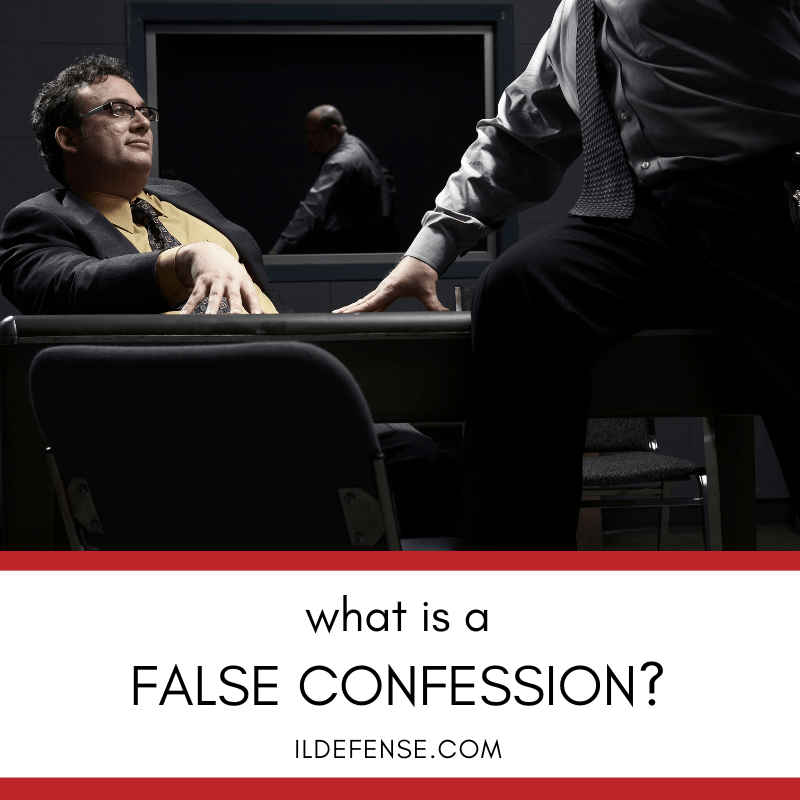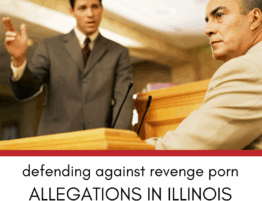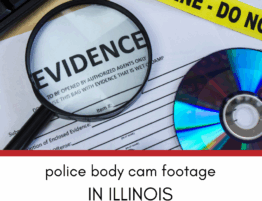

Confessing to a crime is often seen as the ultimate proof of guilt. Jurors, judges, and prosecutors all tend to place enormous weight on a defendant’s own words. Yet history shows that confessions can be misleading. A false confession occurs when someone admits to a crime they did not commit. It may seem unthinkable, but false confessions are a significant factor in wrongful convictions across the United States, including Illinois. According to the Innocence Project, nearly one-third of DNA exonerations involved false confessions. This deep dive examines what false confessions are, why people make them, the famous cases that reveal their devastating consequences, and what defendants should know in 2025.
Defining a False Confession
A false confession is any admission of guilt made by someone who is factually innocent of the crime. False confessions can occur during interrogations, in plea negotiations, or even outside of legal contexts. Legal scholars and psychologists often divide them into three categories. A voluntary false confession is given without pressure, often by someone seeking attention or struggling with mental illness. A coerced-compliant confession happens when someone caves in to interrogation pressure, hoping to escape or gain a perceived benefit. A coerced-internalized confession occurs when a suspect, after prolonged pressure, begins to believe they may actually be guilty even though they are not. These categories highlight the range of human vulnerability. Not all false confessions are the result of direct threats; some stem from confusion, exhaustion, or psychological manipulation.
Why People Falsely Confess
Interrogations are designed to be high pressure. The traditional Reid technique used in Illinois and many other states involves isolating suspects, confronting them with supposed evidence, and urging them to admit guilt. Interrogations often last many hours, creating fatigue and disorientation. Youth is another major factor. Juveniles are more compliant with authority and may not understand the long-term consequences of what they say. Illinois has recognized this risk and passed a law banning police from lying to minors during interrogations. Mental illness and cognitive disabilities also increase risk. People with intellectual limitations may confess simply to stop the questioning, unaware of the stakes. Another common dynamic is the presentation of false evidence. When police claim to have fingerprints, DNA, or eyewitness testimony, suspects may start to believe resistance is futile. Some even begin to doubt their own memory and internalize guilt.
Famous False Confessions
The Central Park Five case in 1989 remains the most widely known example. Five teenagers were convicted of the brutal rape of a jogger in New York’s Central Park after giving videotaped confessions. They later recanted, but the confessions carried enormous weight. They spent years in prison before DNA evidence and the confession of the real perpetrator exonerated them. Their story highlights the vulnerability of youth, the power of coercive interrogations, and the dangers of valuing confessions over evidence.
The Norfolk Four case in 1997 involved four Navy sailors who confessed to rape and murder after long interrogations in Virginia. Despite inconsistent confessions and lack of physical evidence, they were convicted. DNA later pointed to a single perpetrator, and all four were eventually pardoned.
The case of Brendan Dassey in Wisconsin, featured in the documentary “Making a Murderer,” is another example. Dassey, a teenager with intellectual limitations, confessed to participating in a murder after hours of questioning. His statements were riddled with inconsistencies and seemed tailored to what officers suggested. Federal courts debated whether his confession was voluntary, illustrating the legal complexities of evaluating young, vulnerable suspects.
Illinois has its own examples. In 1986, Gary Dotson was exonerated by DNA evidence after being convicted of rape based in part on coerced statements. More recently, several Cook County cases overturned with DNA evidence also involved false confessions, showing that Illinois courts are not immune to this problem.
The Psychology of False Confessions
False confessions arise because people weigh short-term relief against long-term consequences. In the moment, ending an interrogation may feel more urgent than protecting future freedom. This is especially true for juveniles, who are more focused on immediate outcomes. Psychological studies show that lengthy isolation, stress, and sleep deprivation reduce rational decision-making. Suspects may experience memory distrust syndrome, where they come to doubt their own recollections after being told there is evidence against them. Fear plays a role too. If suspects believe they face harsher punishment by denying involvement, a confession may feel like the safer option, even if false.
Legal Standards and Protections in Illinois
Illinois has enacted reforms in response to high-profile false confession cases. Police are now prohibited from lying to minors during questioning. Interrogations in homicide cases must be recorded, giving courts a record of what was said and how it was obtained. Defense lawyers can file motions to suppress confessions if they were obtained through coercion or if constitutional rights were violated. Judges weigh the totality of the circumstances: the length of questioning, the age and mental state of the suspect, whether Miranda rights were respected, and the tactics used by police.
Still, challenges remain. Confessions are persuasive even when defense attorneys argue they were coerced. Jurors tend to believe that no one would admit guilt unless it were true. Overcoming that assumption requires education and careful cross-examination of both interrogators and expert witnesses.
The Role of Expungement
For Illinois defendants whose false confession did not lead to conviction, expungement can erase the arrest record. Expungement clears government databases of the case, restoring the person’s legal status. It does not, however, delete media coverage or recordings of the confession itself. This distinction matters. Once a false confession has circulated, it may remain in the public domain even if the case is dismissed. Still, expungement is a crucial step in preventing government records from perpetuating damage.
Consequences of False Confessions
False confessions can devastate lives. Innocent people lose years to prison while the real perpetrators remain free. Families endure stigma, financial strain, and trauma. Communities lose trust in the justice system. On a broader level, false confessions undermine faith in policing and prosecution. Each wrongful conviction revealed by DNA evidence carries a reminder that confessions are not always reliable.
Protecting Against False Confessions
Defendants must know their rights. In Illinois, you have the right to remain silent and the right to an attorney. Invoking those rights is critical. Do not assume that cooperating fully will make the situation better. If you are questioned, politely assert your right to speak with a lawyer. For parents, it is essential to teach children that they should never submit to police questioning without counsel. Defense lawyers must scrutinize interrogation recordings, timing, and officer conduct. They can call expert witnesses in psychology to explain why an innocent person might confess.
Moving Forward in 2025
Illinois has made progress, but the risk of false confessions remains. Police continue to rely on interrogation tactics designed to elicit admissions. Courts continue to struggle with juror perceptions that confessions equal guilt. Technology like body cameras and recorded interviews helps, but they do not eliminate the underlying dynamics. Education is key. Jurors need to understand the psychology of coercion. Lawmakers need to refine protections. Defense lawyers need to continue challenging improper tactics.
False confessions remind us that the justice system must be cautious. They show that words alone should never outweigh facts, science, and evidence. For Illinois residents, the lesson is simple: never assume that what you say cannot be used against you, and never face police questioning without a lawyer.
Do You Need to Talk to an Attorney?
If you’ve been accused of a crime, we may be able to help you – and don’t worry: It’s completely confidential. Call us at 847-920-4540 or fill out the form below to schedule your free, private consultation with an experienced and skilled Chicago criminal defense attorney now.
Contact Us
"*" indicates required fields








